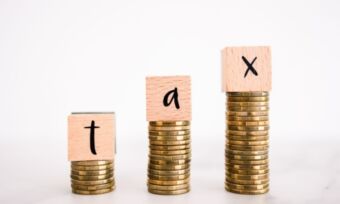Superannuation for under 18s
Retirement may seem a long way off, but if you’re under 18 and doing paid work, you may be entitled to super contributions from your employer.

Retirement may seem a long way off, but if you’re under 18 and doing paid work, you may be entitled to super contributions from your employer.
Key points:
- If you’re under 18, you need to work more than 30 hours in a week to receive a super contribution from your employer.
- If you make an after-tax contribution to super, you may be entitled to a co-contribution from the government of up to $500 a year.
- You can check to see that you’re being paid the super you’re owed by looking at your pay slip.
When you first start working as a teenager, you probably aren’t thinking about your retirement. But the earlier you can set up a super fund, the more time you have to grow your savings, which can make a big difference to your future retirement lifestyle. But what are the superannuation options for Australian workers aged under 18?
Can I earn super if I’m aged under 18?
Yes, superannuation for under 18 year olds is payable, but it works slightly differently than for adults.
If you’re 18 or over, the Australian Taxation Office (ATO) says your employer must contribute an amount to your super fund, based on a percentage of your earnings, known as the Superannuation Guarantee.
If you’re under 18 and employed, your employer will be required to pay you super if you’re working more than 30 hours in a week, according to the ATO. This applies whether you work casual, part-time or full-time hours.
The Fair Work Ombudsman says you should also check the minimum age you can start work in your state or territory, especially if you’re still at school.
How do I set up a super fund?
When you start a job where the employer will need to pay you super, the employer should give you a superannuation fund nomination form to fill out. This will let you nominate a fund where your employer should pay your super contributions.
If it’s your first job, or you want to switch funds, you can compare super funds with Canstar to help you find one that might best suit your needs. Then simply contact the fund and provide some details to set up the account. These details may include:
- Your name
- Your contact details
- Your Tax File Number (TFN)
- Your employer’s Australian Business Number (ABN)
- How you’d like your super invested
- Any insurance cover you may be entitled to
- Who your beneficiaries are in case the worst should happen
But if you either don’t have a preferred fund or simply choose not to nominate one, an account will be created on your behalf with your employer’s chosen default super fund.
Should I combine my super accounts?
If this is your first job, your employer’s default super fund may become a stapled super fund, which can follow you if you later switch jobs. Also, if you apply to work for several employers that are required to pay you super, they will each need to check first if you already have a stapled super fund. This prevents multiple default super funds being set up in your name, which would each be charging fees and potentially putting you at risk of losing some of your super. You can change your stapled super fund later on if you want.
If you did end up with multiple super accounts, you could consider consolidating multiple accounts into a single account to help reduce any fees you pay. But not all providers allow you to consolidate and you’d need to check you wouldn’t lose out on any benefits by closing an account.
What should I do if I’m not being paid any super?
You can check to see that you’re being paid the super you’re owed by looking at your pay slip. By law, an employer must include both the amount of super you’re paid, the date it was paid and the name of the account into which it was paid. You can also check your super balance through your fund’s website or app, or over the phone, to make sure you’re being paid what you are owed. You can also check your super balance via the ATO.
If you think you aren’t being paid any or enough super, and you’re working at least 30 hours a week, then first try talking to your employer. If that doesn’t work, you can contact the ATO online or phone 13 10 20.
 Online rollover
Online rollover
 Online application
Online application
 Online rollover
Online rollover
 Online application
Online application
 Online rollover
Online rollover
 Online application
Online application
 Online rollover
Online rollover
 Online application
Online application
 Online rollover
Online rollover
 Online application
Online application
Canstar may earn a fee for referrals from its website tables and from Promotion or Sponsorship of certain products. Fees payable by product providers for referrals and Sponsorship or Promotion may vary between providers, website position, and revenue model. Sponsorship or Promotion fees may be higher than referral fees.
On our ratings results, comparison tables and some other advertising, we may provide links to third party websites. The primary purpose of these links is to help consumers continue their journey from the ‘research phase’ to the ‘purchasing’ phase. If customers purchase a product after clicking a certain link, Canstar may be paid a commission or fee by the referral partner. Where products are displayed in a comparison table, the display order is not influenced by commercial arrangements and the display sort order is disclosed at the top of the table.
Sponsored or Promoted products are clearly disclosed as such on the website page. They may appear in a number of areas of the website, such as in comparison tables, on hub pages, and in articles. The table position of the Sponsored or Promoted product does not indicate any ranking or rating by Canstar.
Sponsored or Promoted products table
- Sponsored or promoted products that are in a table separate to the comparison tables in this article are displayed from lowest to highest annual cost.
- Performance figures shown for Sponsored or Promoted products reflect net investment performance, i.e. net of investment tax, investment management fees and the applicable administration fees based on an account balance of $50,000. To learn more about performance information, click here.
- Please note that all information about performance returns is historical. Past performance should not be relied upon as an indicator of future performance; unit prices and the value of your investment may fall as well as rise.
Can I make extra contributions to my superannuation if I’m under 18
As a young worker, you’re likely on a relatively low income, which could make you eligible for government contributions to your super. For example, if you make an after-tax contribution to your super, you may be entitled to a co-contribution from the government of up to $500 a year, paid into your super fund. You don’t have to do anything to claim this extra payment if you’re eligible, as it will apply automatically so long as your super fund has your tax file number.
How can I make the most of my super while I’m young?
As a teen, it’s still early days in your super journey, and you’ve likely not grown much of a nest egg. Still, it’s a good idea to keep on top of what super you have and make sure it’s working in your best interests.
As well as looking for opportunities to make extra super contributions when you can (and potentially benefit from government co-contributions), you could look at how your super is invested. Some super funds automatically adjust your investments based on your life stage, though you may also be able to select your preferred investment option. For example, a Growth investment option may help to increase your super savings, though these tend to be higher-risk investments.
Your super fund may also be able to help you save money for a house. The First Home Super Saver (FHSS) scheme lets you make voluntary contributions of up to a maximum of $15,000 in any one financial year, and up to a maximum of $50,000 across all years. You can then withdraw this money from the super fund to help you pay a deposit on your first home some day. This can be useful under the right circumstances, as typically you can’t easily withdraw money from your super fund until you retire.
How to find the best super fund for under 18s in Australia
The best super fund will be different for every Australian, as everyone’s financial situation and personal goals are different.
Some of the factors you may want to consider when choosing a super fund when you’re under 18 include:
- Performance: How much could you reasonably expect your money to grow over time with this fund? Remember that past performance is not a reliable indicator of future performance.
- Fees: How much does the fund charge for handling your super? Lower fees can mean more savings for your retirement, though you may miss out on some features and benefits.
- Investment options: Do you have choices available for how the fund will invest your super?
- Insurance: Some super funds may offer cover for some of life’s unexpected events.
- Access and service: Does the super fund have a convenient app for managing your money? How are its customer service and review scores?
You can get started researching and comparing super funds by using our tables. You can filter the table results to narrow down the available options to only those that should suit your needs, now and in the future.
Cover image source: maxbelchenko/Shutterstock.com
This article was reviewed by our Finance Editor Jessica Pridmore before it was updated, as part of our fact-checking process.

- Can I earn super if I’m aged under 18?
- How do I set up a super fund?
- Should I combine my super accounts?
- What should I do if I’m not being paid any super?
- Can I make extra contributions to my superannuation if I’m under 18
- How can I make the most of my super while I’m young?
- How to find the best super fund for under 18s in Australia
Try our Superannuation comparison tool to instantly compare Canstar expert rated options.






